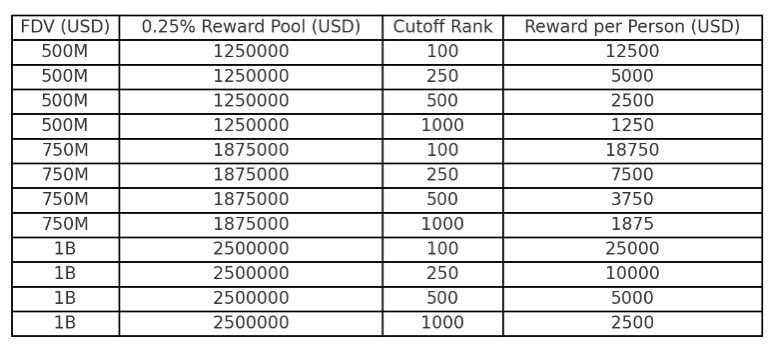Exploring the evolving intersection of artificial intelligence (AI) within modern technology landscapes offers a journey into one of the most transformative phenomena shaping our world today. This analysis delves into the multifaceted impact of AI, unpacking its rapid advancement, practical applications, and the challenges it introduces—inviting readers to grasp both the promise and complexity of AI as it integrates deeper into everyday life.
—
The Rise of Artificial Intelligence: More Than Just Algorithms
Artificial intelligence is no longer a distant futuristic concept; it’s woven into the fabric of many aspects of modern society. From the voice assistants in smartphones to predictive algorithms steering business decisions and autonomous vehicles learning to navigate streets, AI’s presence is vast and expanding.
Understanding AI’s Core: Learning Machines and Data
At its essence, AI systems are built on the ability to learn from data. Unlike traditional software that follows static instructions, AI adapts, improving performance over time by identifying patterns and making predictions. This dynamic learning capability powers everything from personalized recommendations on streaming platforms to complex diagnostics in healthcare.
This adaptability, however, depends heavily on the quality and breadth of data fed into AI systems. Large datasets enable nuanced understanding, but they also carry risks related to biases and errors. Ensuring that AI learns equitably is an ongoing technical and ethical challenge.
—
Practical Transformations: AI Across Industries
One of the most compelling stories about AI is how it’s revolutionizing industries by enhancing efficiency, accuracy, and creativity in ways once unimaginable.
Healthcare: Diagnosing and Personalizing Treatment
AI-driven tools now assist doctors by quickly analyzing medical images, spotting anomalies, and even suggesting treatment plans based on patient records. These capabilities accelerate diagnoses and can improve outcomes by tailoring treatments to individual genetic profiles. For example, AI models analyzing genomic data are pushing personalized medicine into new frontiers, offering hope for tackling complex diseases.
Business and Finance: Smarter Decisions and Automation
In business, AI helps forecast market trends, optimize supply chains, and enhance customer experiences through chatbots and virtual assistants. Financial institutions deploy AI for fraud detection, credit scoring, and algorithmic trading, turning mountains of data into timely insights. This has transformed decision-making from gut-driven to data-driven, although it demands ongoing vigilance to manage risks of automation errors and cyber vulnerabilities.
Creative Arts and Media: Collaborating with Machines
AI’s creative capacity is a surprising frontier. From generating music and art to assisting writers and filmmakers, AI is becoming a collaborator rather than just a tool. While some fret about creativity being mechanized, others embrace the novel ideas and hybrid expressions AI can inspire—redefining what it means to be an artist in the digital age.
—
Challenges on the Horizon: Ethics, Bias, and Control
With AI’s expansive influence comes a host of dilemmas that merit close attention.
Ethical Concerns and Bias
AI systems inherit biases from their training data, which can perpetuate or amplify social inequalities if unchecked. Facial recognition errors and biased hiring algorithms have sparked controversies, highlighting the need for transparent, inclusive AI design and governance frameworks that hold creators accountable.
The Black Box Problem and Explainability
Many AI models, especially deep learning neural networks, operate as “black boxes”—producing outcomes without clear explanations. This opacity hinders trust and complicates practical deployment in sensitive areas like criminal justice or healthcare. Efforts to develop explainable AI seek to bridge this gap, making decisions more interpretable to humans.
Job Displacement and Economic Impact
Automation fueled by AI presents a double-edged sword for the workforce. While AI can take over tedious or dangerous tasks, improving safety and productivity, it also threatens jobs in traditional sectors. The societal challenge lies in reskilling workers and creating policies that balance innovation with inclusive economic participation.
—
The Path Forward: Balancing Innovation with Responsibility
Navigating the AI revolution requires a thoughtful blend of enthusiasm and caution.
Investing in AI Literacy and Collaboration
Building widespread understanding of AI—its capabilities and limitations—is fundamental for society to harness it effectively. This involves education initiatives that empower users and decision-makers alike. Moreover, interdisciplinary collaboration among technologists, ethicists, policymakers, and communities is vital to craft robust standards.
Emphasizing Human-Centered AI
Designing AI systems with human values at their core ensures technology augments rather than replaces human wisdom and empathy. This approach prioritizes transparency, fairness, and user control, aiming to build trust between humans and machines.
Regulatory and Policy Innovation
Legal frameworks tailored for AI must balance fostering innovation and protecting rights. Global cooperation can help address cross-border implications, from data privacy to the containment of autonomous weaponry, shaping AI’s trajectory toward beneficial societal impact.
—
Looking Beyond the Horizon: AI’s Unfolding Story
Artificial intelligence stands as one of humanity’s most potent inventions, poised to redefine how we live, work, and create. Its potential to solve grand challenges—climate modeling, disease eradication, personalized education—is immense. Yet, realizing this promise depends on conscious stewardship and inclusive dialogue that reflect diverse voices.
As AI evolves, so too does our understanding of intelligence itself—both artificial and human. The future invites us to see AI not just as a technological phenomenon but as a mirror reflecting our collective aspirations, fears, and ingenuity. Embracing this journey with open eyes and thoughtful hearts will shape the legacy we leave for generations to come.
—
Sources
– MIT Technology Review: What is Artificial Intelligence?
– Harvard Business Review: The Jobs AI Will Create
– Nature: Explainable AI
– World Economic Forum: The Future of AI Ethics





